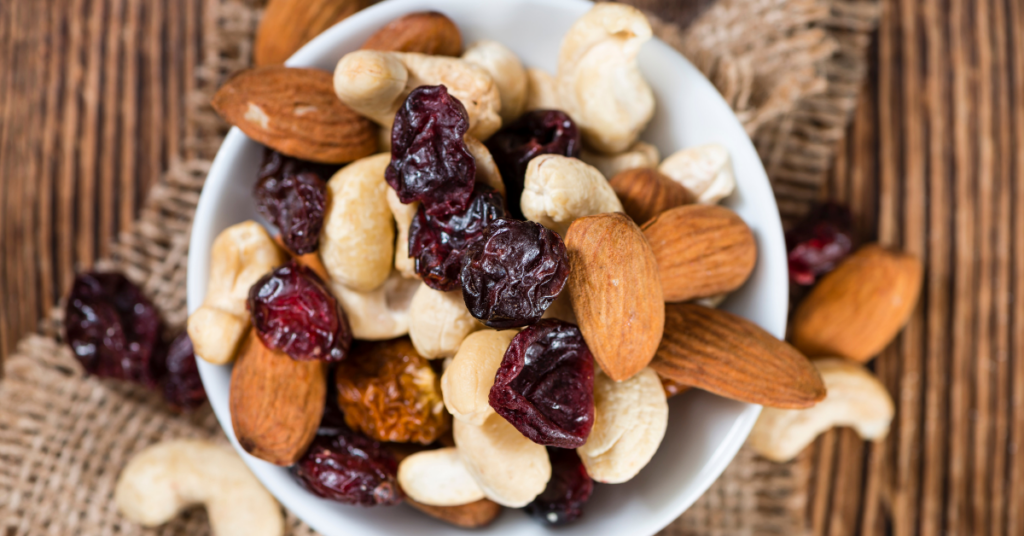Article at a glance:
- There’s growing research that gut health has an impact on many aspects of physical and mental health.
- The bacteria in our bodies support immune health, hormone regulation, digestion, and metabolism.
- Including a variety of fermented foods along with fiber-rich foods including fruits, vegetables, and whole grains, along with healthy fats can support the growth of beneficial gut bacteria.
Gut health has become a hot topic recently and for good reason – there’s growing research showing the impact of gut health on overall wellness and even mental health and mood. Below is an overview of what gut health is and how to include plant-based foods to support a healthy gut.
What is gut health?
The “gut” refers to the gastrointestinal tract (aka GI tract). The GI tract includes your stomach, intestines, and colon. When you eat food it travels down your esophagus, and into your stomach where digestion begins. The digested food then travels through the intestines where nutrients are absorbed to nourish your body. The waste then travels through the colon to be eliminated.
Your gut contains around 100 trillion bacteria, that’s right, more than all the stars in the Milky Way galaxy! if the word “bacteria” sounds like a bad thing, don’t worry, this bacteria is very beneficial and even imperative to your body’s immune system, hormone regulation, digestion, and metabolism. This collection of bacteria is referred to as the “gut microbiome”.
Gut health essentially refers to the well-being or “health” of your gut microbiome. A healthy gut is one with a lot of diverse, healthy bacteria.
Plant-based foods to support gut health
Now that we reviewed what gut health is, you may be wondering “how can I eat to support my gut health?”. Below is a list of plant-based foods to include in your diet that can have a positive impact on ensuring the growth of beneficial gut bacteria.
- Fermented foods
- Fermented foods are rich in probiotics (live microorganisms) that support a diverse gut microbiome. These foods help balance gut bacteria by increasing the number of beneficial bacteria and support healthy digestion.
- Foods: sauerkraut, yogurt, kefir, kimchi, miso and kombucha.
- Plenty of fruits & veggies
- Fruits and vegetables provide a healthy dose of fiber, antioxidants, and prebiotics, which provides a healthy food source for the beneficial bacteria in the gut. They also provide antioxidants (compounds that protect your cells against oxidative damage) along with other beneficial nutrients, which promote overall wellness.
- Foods: choose a wide variety of fruits and vegetables like berries, banana, broccoli, apples, and sweet potatoes.
- Fiber-rich foods
- Fiber is one of the most important nutrients to support a healthy gut microbiome. Consuming dietary fiber supports smooth and regular digestion, helps prevent digestive disorders such as irritable bowel syndrome, and also helps balance blood sugar levels.
- Foods: chia seeds, flaxseeds, whole grains, beans, vegetables like broccoli and brussel sprouts, fruits like apples, pears, and berries.
- Prebiotic foods
- Prebiotics are fibers that provide “food” to support the bacteria in the gut to function effectively. They also encourage the growth of beneficial gut bacteria, which enhances overall gut health.
- Foods: bananas, garlic, onion, asparagus, apples, chicory root, dandelion greens, flaxseeds, and oats.
- Healthy fats
- Healthy fats are essential for overall health and wellness. They support cardiac function, hormone regulation, and nutrient absorption. Particularly, omega 3 fats support cells that protect the gut lining. Unsaturated fats such as olive oil and avocados help promote the growth of beneficial bacteria in the gut.
- Foods: avocados, olive oil, walnuts, flaxseeds, chia seeds, salmon, and almonds, to name a few.
Live Complete Takeaways:
A healthy and diverse gut microbiome has profound health benefits including healthy digestion and nutrient absorption, supporting a strong immune system, reducing inflammation, and even improving mental health through the gut-brain axis. Consuming a wide variety of fruits, vegetables, fibers, and fermented and probiotic foods can support a healthy balance of beneficial bacteria.



